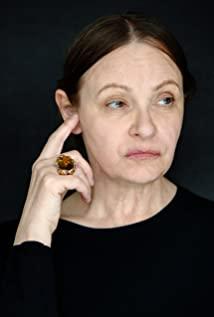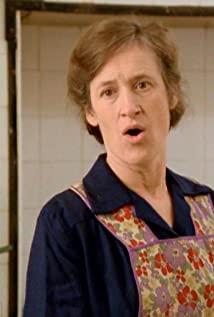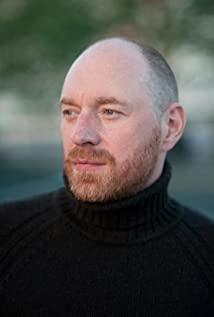I read a review of People Weekly that day, and now I understand a little bit.
What kind of people love the streets of
Berlin are "ordinary fascists", as the ancient Jews said: there is no righteous person, not even one.
Hannah said in court that the female guards in the dock, like herself, participated in the screening of the slaughtered. The judge asked sharply, "Does it make you more comfortable to say that we are all guilty, rather than just saying that I am guilty?"
The use of personal pronouns is not only a literary and philosophical issue, but also a theological issue. In public worship and prayer, it is difficult for us to overcome our self-centeredness, and we always say "what should I do"; when we repent, we have to pull others together and say "we are guilty". We are individualists one time and collectivists the next. Our soul, stored between different personal pronouns, cannot be seen by others, and finally cannot be found by ourselves.
In fact, the most self-centered people are total collectivists, because everyone except you is "collective". As Hitler said, they are not "people", but "the masses". Conversely, the essence of collectivism is that one person's self-centeredness replaces everyone's self-centeredness. Faith means that the sovereignty of God replaces anyone's self-centeredness. Poor people must be self-centered, sometimes themselves, sometimes leaders, sometimes husbands, wives, parents, or children. A person's sorrow and pain are the derivatives of his self-centeredness. Standing on the center and taking a step outside is the beginning of faith. The difference between true faith and folk religion is also here. True belief can replace any visible self-centeredness; folk religion is a visible transfer of self-centeredness.
It can also be judged by its effect: true faith brings true love. A French philosopher said that the definition of love is that you have all rights and I have all obligations. It means that love is the shattering of your self-centeredness. That willingness, will, and ability to help you give yourself to anyone is love. The faith that produces this love is true faith.
And in idolatry, you can no longer give your time, thoughts, and life to another living being, except to give yourself to a specific object. This is Hannah's tragedy. An "ordinary fascist", a woman of flesh and blood, who could neither give herself to the children who read to her in the concentration camps, or to the Jews who were chained and burned alive in the church, nor could she give herself to the 15-year-old Michelle. Even after being imprisoned for half a lifetime and learning to read, she couldn't give herself a clean self. In the end, she put the book about the Holocaust, borrowed from the library, on a chair, stepped on it, and committed suicide.
As much as I sympathize with myself before I turned 32, I sympathize with Hannah. The Auschwitz female guard, a post-war bus conductor, seduced 15-year-old Michelle, had a relationship with him, and asked Michelle to read her literary masterpieces. They went to the country together and kissed in front of passers-by. But none of this is true love. There is an oath of the SS in the famous documentary "Ordinary Fascism", which is the most concise of the various oaths of the Third Reich - "I swear allegiance to the Führer and any superior appointed by the Führer, and unconditionally obey all orders." By taking this oath, you are no longer a human being, you are lower than a human being, and you are a mass.
That year, Hannah signed up for the SS. It seems that she is not a vicious person, as Arendt said in "Eichmann of Jerusalem", although Eichmann personally issued tens of thousands of orders to kill Jews, but he is not a devil in people's imagination, but a man. Bland, almost boring ordinary people. This is a "banal evil".
Hannah is full of this banal evil. Order, orders, and idolatry of the head of state and the state under the mighty superseded any belief with a moral connotation. Hitler said, treat the masses like women, touching their most primitive emotions without appealing to reason. Hannah did the same to Michelle. In the first half of the film, the relationship between the two is unbearably uncomfortable. Eight years later, when Michelle, who was in law school, accidentally saw Hannah on trial in court, I realized what the author meant. In the concentration camp, Hannah's strength in front of the detainees relied on the Nazi uniform. When she became a conductor, all she could rely on was age and body. So Michelle had to be a teenager in order for her to continue to be strong in their sexual relationship.
Fascism not only destroyed Hannah's morality, but also her ability to love. Hannah's relationship with Michelle is actually a re-enactment of a fascist relationship between a man and a woman. Hannah's eroticism is collectivistic, egocentric, and fascist in nature. If love means soul commitment, adultery means any sexual relationship that lacks soul commitment. Then the film is not about love, but about adultery, about how a self-centered fascist ghost destroys human love.
Maybe old Hannah really wanted to love Michelle who kept sending her tapes to prison. However, not only she, but even Michelle lost her ability to love because of that fornication. At the beginning of the film, Michelle has been divorced for a long time. A naked woman got up and asked him, "Why didn't I know you had a daughter?" His daughter said at the dinner table, "I always thought your silence was my fault when I was a kid." Michelle said, "Silly boy, I can't open up to anyone, it has nothing to do with you." Several details reveal the damage Hannah has done to Michelle's life. He, too, can no longer give himself to anyone.
In the novel, Michelle visits the prison and asks Hannah what she thinks about the past. "I don't think nobody understands me, people who don't understand me, can't judge me and ask me to say everything," Hannah said. That's why, in court, in order not to be known that she is illiterate, she would rather be charged more severely. What the author wants to say is that she has no morals, no love, but only symbolically keeps her shame in a little secret. And Hannah said, "Only the dead can understand me and judge me. They come to me every night."
If there is really no righteous person in the world, a sinner can fall in love with another sinner, but cannot fall in love with his or her sin. Because sin is unlovable. So Michelle can help her, but not save her. Don't say Hannah, I do the same with my wife. How can I love her more and more unless she gets better, or I get better myself? Unless there is a kind of love that takes all sins first. And then, even loving someone like Hannah, more and more.
May everyone's love be related to such love. Otherwise, every family may be an Auschwitz.
View more about The Reader reviews











